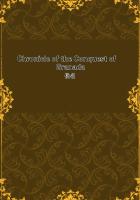At parting, the custodian told the Marches that he would easily have known them for Americans by the handsome fee they gave him; they came away flown with his praise; and their national vanity was again flattered when they got out into the principal square of Ansbach. There, in a bookseller's window, they found among the pamphlets teaching different languages without a master, one devoted to the Amerikanische Sprache as distinguished from the Englische Sprache. That there could be no mistake, the cover was printed with colors in a German ideal of the star-spangled banner; and March said he always knew that we had a language of our own, and that now he was going in to buy that pamphlet and find out what it was like. He asked the young shop-woman how it differed from English, which she spoke fairly well from having lived eight years in Chicago. She said that it differed from the English mainly in emphasis and pronunciation. "For instance, the English say 'HALF past', and the Americans 'Half PAST'; the English say 'laht' and the Americans say 'late'."
The weather had now been clear quite long enough, and it was raining again, a fine, bitter, piercing drizzle. They asked the girl if it always rained in Ansbach; and she owned that it nearly always did. She said that sometimes she longed for a little American summer; that it was never quite warm in Ansbach; and when they had got out into the rain, March said: "It was very nice to stumble on Chicago in an Ansbach book-store. You ought to have told her you had a married daughter in Chicago.
Don't miss another such chance."
"We shall need another bag if we keep on buying books at this rate," said his wife with tranquil irrelevance; and not to give him time for protest; she pushed him into a shop where the valises in the window perhaps suggested her thought. March made haste to forestall her there by saying they were Americans, but the mistress of the shop seemed to have her misgivings, and "Born Americans, perhaps?" she ventured. She had probably never met any but the naturalized sort, and supposed these were the only sort. March re-assured her, and then she said she had a son living in Jersey City, and she made March take his address that he might tell him he had seen his mother; she had apparently no conception what a great way Jersey City is from New York.
Mrs. March would not take his arm when they came out. "Now, that is what I never can get used to in you, Basil, and I've tried to palliate it for twenty-seven years. You know you won't look up that poor woman's son!
Why did you let her think you would?"
"How could I tell her I wouldn't? Perhaps I shall."
"No, no! You never will. I know you're good and kind, and that's why I can't understand your being so cruel. When we get back, how will you ever find time to go over to Jersey City?"
He could not tell, but at last he said : "I'll tell yon what! You must keep me up to it. You know how much you enjoy ****** me do my duty, and this will be such a pleasure!"
She laughed forlornly, but after a moment she took his arm; and he began, from the example of this good mother, to philosophize the continuous simplicity and sanity of the people of Ansbach under all their civic changes. Saints and soldiers, knights and barons, margraves, princes, kings, emperors, had come and gone, and left their single-hearted, friendly subjectfolk pretty much what they found them. The people had suffered and survived through a thousand wars, and apparently prospered on under all governments and misgovernments. When the court was most French, most artificial, most vicious, the citizen life must have remained immutably German, dull, and kind. After all, he said, humanity seemed everywhere to be pretty safe, and pretty much the same.
"Yes, that is all very well," she returned, "and you can theorize interestingly enough; but I'm afraid that poor mother, there, had no more reality for you than those people in the past. You appreciate her as a type, and you don't care for her as a human being. You're nothing but a dreamer, after all. I don't blame you," she went on. "It's your temperament, and you can't change, now."
"I may change for the worse," he threatened. "I think I have, already.
I don't believe I could stand up to Dryfoos, now, as I did for poor old Lindau, when I risked your bread and butter for his. I look back in wonder and admiration at myself. I've steadily lost touch with life since then. I'm a trifler, a dilettante, and an ******* of the right and the good as I used to be when I was young. Oh, I have the grace to be troubled at times, now, and once I never was. It never occurred to me then that the world wasn't made to interest me, or at the best to instruct me, but it does, now, at times."
She always came to his defence when he accused himself; it was the best ground he could take with her. "I think you behaved very well with Burnamy. You did your duty then."
"Did I? I'm not so sure. At any rate, it's the last time I shall do it.
I've served my term. I think I should tell him that he was all right in that business with Stoller, if I were to meet him, now."
"Isn't it strange," she said, provisionally, "that we don't come upon a trace of him anywhere in Ansbach?"
"Ah, you've been hoping he would turn up!"
"Yes. I don't deny it. I feel very unhappy about him."
"I don't. He's too much like me. He would have been quite capable of promising that poor woman to look up her son in Jersey City. When I think of that, I have no patience with Burnamy."
"I am going to ask the landlord about him, now he's got rid of his highhotes," said Mrs. March.















